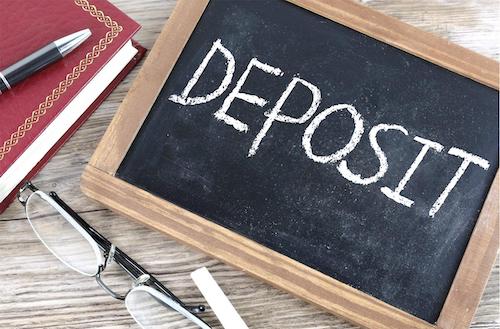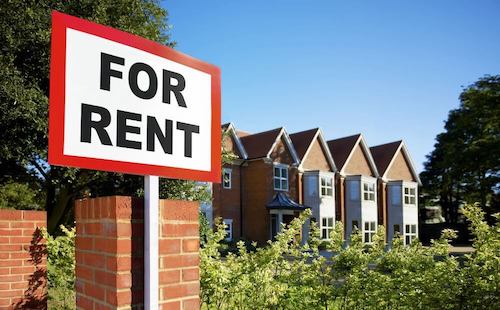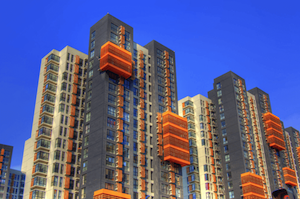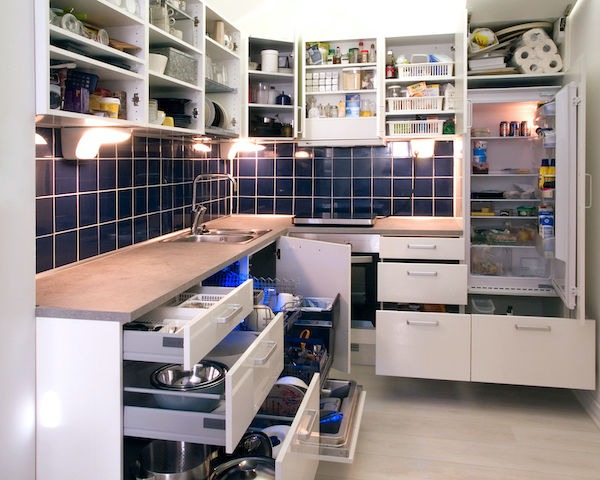How to find a new home abroad
Finding somewhere to live can sometimes be extremely difficult, especially if you have certain expectations and if you’ve never lived in the area you're moving to. This post will hopefully add some useful tips that might make moving a little easier.

When I moved from the UK to Germany, I was lucky enough to not have to search for an apartment straight away as I was able to move in with someone, but this is often not the case. If this is not the case for you, the first thing that you need to decide on is whether you want to buy or rent.
If you're moving to Stuttgart I would highly suggest looking for apartments to rent, especially for the short term as they are in much greater supply than any other form of property. In certain areas this will be more common, and in other areas you might find that buying a house is a fantastic option, so always be sure to find out before-hand what seems to be generally more available.
The first thing you're going to want to do is research. And lots of it. Find out average prices for houses, apartments, flats etc for wherever it is that you’re moving. Some sites or agencies can be mis-leading in making you think you’re getting a good deal even though in reality it’s still above the average price for that area.
Check as many different sites and go to as many agencies as you can to get a rough idea of the average asking price in the area – this way you will be able to tell if one agency prices everything too high, so even if a “deal” looks great on their site, it may only be average compared to the others operating in that area.
Next you need to make sure you know the process you’ll have to go through in order to buy or rent a property. I’m not entirely sure about buying a property but I imagine it will involve a similar check with a little more detail. When renting you will often need to provide a proof of employment, a proof of income and some may want background checks.
Once the owner or realtor has confirmed that you are able to pay what you say you can pay, you’ll then have to sign contracts and confirm how long you will stay in the property for, what the deposit will be and how much bills will cost you.
This is another thing that you will need to research before you start the hunt for a home – what does electricity, water and gas generally cost in the area? Can they charge you for a things like a TV connection? What is a typical deposit amount for the type of properties you are looking at? You don’t want to be caught out by dodgy dealers who will try and overcharge you for these things just because you're new to the country and don’t understand how it all works.

In Germany you usually need to provide a proof of income and pay a deposit (known as Kaution) when renting. The Kaution shouldn’t be more than 3 months’ rent (bills excluded), so if it is then make sure to ask them or avoid this person. Some people will also ask for a credit check (known as a Bonitätsprüfung), however this is not “necessary” if you are paying 3 months’ worth as a deposit.
An additional process that Germany needs you to go through (there may be other countries that require this too but as I haven’t lived there I am unsure), which requires you to un-register at your local council office from your old address, and then re-register your new address at your new local council office.
This is very important to do in Germany as a proof of your current residence is needed to work, and it can result in punishment from the government if you forget or ignore this step. Make sure you know if anything like this is needed where you are going BEFORE you arrive because it will save you a massive struggle and potential fines when it comes to actually moving.
Once you’ve become an expert in the field of property resarch and buying, it’s then time to choose whether to buy or rent, and to start finally searching for your new property. This process is different from country to country – some may evolve more around Real Estate companies, whereas others may have a great range on offer from private sellers. Find out which is the best way to find a place in your country and then check for new availabilities at least daily. Something new will always come up and you don’t want to miss them.
For Germany and Australia there are quite a few online sites that are great for finding rental properties, so you can easily find and request viewings long before you need to move. I will leave a section at the bottom with links to sites and pages that I have noticed or found useful myself when looking at property in other countries. Now I will run through some of the major benefits and negatives that I have noticed when looking for new places to live, so that hopefully you can make an easier decision.

There are several major benefits to renting a property when you first move to a new country. The first benefit is that they are often easier to find, which makes the process a lot less stressful and annoying as you don’t have to spend hours and hours just to find some places you’re interested in.
There are loads of sites that offer rental apartments of all sorts, meaning that there's a large and wide-spread variety available to suit your needs. This also gives you more flexibility with location too as you’re more likely to find rental apartments nearer the city centre, whereas if you are buying a house this availability in many cities will drastically decrease.
What's more is that buying a property will often require far more checks, documents and rights than renting will. For example, in many countries, getting a mortgage could be very difficult when moving there straight away as they don't know anything about you or your financial situation. If you haven't got a job lined up for the moment you arrive, this will also make it much harder to get a mortgage. You may also need to have residence permits, income reports and checks - all of which can be hard to obtain or may not be valid in a new country.
This is where renting can help you out. In the short term, it can allow you to move in without as many issues and allows you time to land on your feet, and obtain the financial and legal documents you need before buying a property.

Another benefit that comes with renting is the flexibility of the length of stay. You can find short-term leases that only last a few months, which is great if you’re uncertain as to where exactly you want to live and it what kind of property. It gives you the opportunity to try out a couple of different types and areas until you find one that suits you and your needs.
If you know that you’re just going to be there for a work placement or international study then this allows you to do that with peace of mind, knowing you’ll be able to get rid of your property once you leave the country again.
However, if you're already fairly certain about where you would like to live then there are also loads of longer leases that act as a more permanent home. Just be sure to have read the agreements and make certain that you’re not bound to a contract for longer than you would like to be!
This point leads me into my next positive of looking for a rental property rather than buying when you first move to a new country: the rental agreements will always be less binding or permanent than if you decide to fully purchase somewhere.
Even if you agree on a longer term lease then it will only bind you to that property for a maximum of a couple of years, whereas a home that you have bought will take you decades to pay off, or may not be easy to sell quickly if you decide you don’t like it or would prefer somewhere else.
It’s an undeniably great benefit to have when moving to a brand new area in a brand new country as you can rarely be certain that you’ll like somewhere 100%, so it allows you to change your mind much more than you could if you decided to buy as soon as you move.
It’s also good if you're uncertain about your job security, or just want to try out new places to live until you find one that you like. If for any number of reasons you were to lose your job, or lose your right to work in that country then you wouldn’t have to worry about losing your property so much and would be fine to return home – I imagine it wouldn’t be great to be tied down to your new house without any way of working or earning an income to pay for it!
Finally, and maybe most obviously, renting is cheaper than buying. Who knew right? Although it’s fairly obvious and one of the main reasons that somebody would choose to rent in the first place, I had to mention it as a benefit because it really makes a difference at the start of your move. Knock on wood that you won’t have any issues, but a lot of the time there are going be certain things you don’t account for when moving and it’s nice to have the spare income available to deal with these, rather than having to spend it all on a hefty deposit or mortgage.

Having said that, there are obviously drawbacks to renting where buying a house will mostly eliminate those problems. For example, rental properties are sometimes older and less cared for than homes for sale as the renter has less motivation to keep the place homely and modern because it is not theirs and they know that they will probably leave it all behind one day anyway.
The owners or the property also only ever do so much as they know that due to high demand, somebody will likely move in either way and therefore are also not hugely pressured into modernising the place. This is where buying a house has a definite advantage as home owners a far more likely to make the property they own a nice place to live – not only for themselves whilst they live there, but many people will renovate with the intention to sell the property.
Real Estate companies will also work with the owners to make sure that the house is as nice and presentable as can be in order to convince you to buy it, which means you’re far more likely of getting somewhere modern, clean and well looked after than if you were to only search for a rental property.
Following on from that point, another issue that I have noticed myself when looking for places to move into (this may just be a locational problem and may not apply everywhere) is that many long-term rental properties do not come with their own kitchen in place. This means that as soon as you move in you’re gonna have to spend hundreds if not thousands just to have a kitchen built in, and if you move out again you will either have to pay for someone to remove it and take it with you, or leave behind all the expenses that you had when you moved in.

With buying a house this is less of an issue, partly due to the majority coming with their own kitchens but also due to the fact that even if you do have to purchase a kitchen, this will be staying with you for a lot longer (presumably if you are buying a house you’ll be staying there longer than if you rent) and therefore is a much worthier investment. Although it may not be an issue in your area, or it may not be a problem for you to get a new kitchen built, it’s definitely a factor to consider when thinking about renting as not everybody wants to spend money on something that they may then just have to leave behind.
One final thing that I want to mention about renting, and again this might just be a locational problem, but there are a lot more scammers in the rental market. Although they are fairly easy to spot, it does make the process a little more frustrating and risky as lots of people on websites will try to trick you into rentals that aren’t what they say they are or they want some kind of upfront money.
Obviously if you are going to look at the property yourself then you can fairly easily avoid this, but it is one factor to watch out for when researching and finding rental properties. Be absolutely sure that you look at the property before you decide, do not pay someone “because they live in another country and will have to send you the keys by mail” (an all-time favourite apparently) and that you have researched what the owners are allowed to take from you in terms of info, deposits and bill payments!
So I hope that you found some use in this small overview of finding a new property in your new home country. There are many options available and some fantastic opportunities if you follow the right process and look effectively. If you have any more questions about moving abroad, or moving to Germany then as always you can leave a comment or get in touch via our contact page!
Good luck with your new venture!
Here are some of my favourite sites in Germany to find apartments:
ImmobilienScout24
ImmoWelt
Immonet
Immobilio
And if you are looking for more short-term property in Australia here are a couple of my favourites: